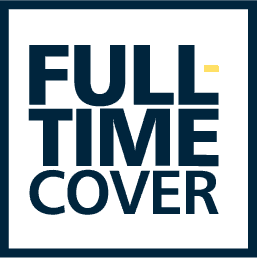Staff Safety Precautions & Risk Management for Restaurants & Bars
Recently, we talked about the pressures facing the hospitality industry due to staff shortages, with bars and nightclubs struggling to recruit sufficient security staff, who are increasingly leaving the profession since the start of the coronavirus pandemic.
Now, with news of the rise of the new variant Omicron, the hospitality industry has been dealt another blow. With Christmas and the New Year being the busiest season for many of these establishments, the question is how can they continue to operate while ensuring the safety of staff and patrons?
Keeping Staff (and Customers) Safe
Current guidance from the UK government requires the wearing of face masks in most indoor venues. However, in a statement by Prime Minister Boris Johnson on Wednesday 8th December, he assured the public that “there will be exemptions in venues where it is not practical to wear one, such as when you are eating, drinking or exercising. For that reason, face masks will not be required in hospitality settings.” Bars and restaurants are therefore exempt from the face mask rule. However, many have opted to encourage the wearing of face coverings in a bid to protect customers and staff alike. Takeaway establishments where there is no space for the consumption of food or drink are not exempt.
From Wednesday 15th December, new rules came into force in England, requiring people to have Covid passports or negative lateral flow tests to enter nightclubs. The rules apply to indoor venues holding more than 500 people, and outdoor venues of over 4,000 capacity. Michael Kill, chief executive of the Night-Time Industries Association said that the introduction of passports will have a ’devastating impact’ on the sector.
Advice for Businesses in the Hospitality Sector
The government offers some key advice for hospitality businesses, with guidance on what they can do to help protect staff and customers. Measures include:
– Completing a health and safety risk assessment that covers the coronavirus-related risk.
– Providing adequate ventilation and fresh air supply to indoor spaces, either through opening windows and doors or through air conditioning. Businesses should consider using CO2 monitors to help assess the quality of the ventilation.
– Reminding staff and customers to wear face coverings where required by law. Many hospitality businesses and shops have done this by displaying signs in prominent places.
– More frequent cleaning and sanitising of surfaces, tools and hands. Offering hand sanitiser to staff and customers to help kill any germs.
– Preventing people with COVID-19 symptoms from entering the premises. Staff or customers who display symptoms should self-isolate immediately and book a PCR test.
– Allowing people to check-in at venues to support NHS Test and Trace.
– Ensuring staff are properly trained and receive up to date communication and guidance on keeping customers safe.
The Food Standards Agency has also produced some helpful guidance for food businesses on adapting to work safely during the pandemic. The guide offers practical advice on hygiene processes and other safety requirements to enable businesses to continue working while protecting staff and customers and preventing the spread of the virus.
We are the right people for you
Lets work together
Considerations for the Industry Going Forwards
Employers are required by law to protect workers from threats to their health and safety in the workplace, including COVID-19. They are expected to manage the risk as they would any other, with a suitable risk assessment and by implementing risk control measures. Developing a Covid-specific risk assessment should be a high priority for business owners. Employers who do not take reasonable steps to protect their staff and customers, may be held liable. So, it’s important for businesses to utilise the available guidance to ensure they are doing everything possible to keep people safe.
Is your employer’s liability insurance up to date? What types of claims does it cover? Now, more than ever, businesses should be assessing their policies to make sure they are appropriately covered in the event of a claim. If your policy doesn’t reflect the evolving risks in a post-pandemic society, now might be the time to revisit it. Call an experienced broker in on 0207 923 4191 today.
Unfortunately, for many businesses in the hospitality sector, the latest news has led to a wave of cancellations, at a time when industry stakeholders were hopeful that the revenue from Christmas gatherings and events would help prop up an industry badly suffering the effects of the pandemic and its subsequent lockdowns.
However, with the news that hospitality can remain open this Christmas, albeit with careful restrictions, there is some cause for relief, as people continue to venture out to celebrate. For restaurants, bars and nightclubs, it’s still a long road ahead. But, by following guidance on keeping people safe and making sure adequate insurance coverage is in place, businesses will be in the best position for recovery.
For expert advice on insurance for bars, nightclubs and restaurants, particularly in the wake of the latest updates, contact Full Time Cover on 0207 923 4191 to speak to an advisor.
